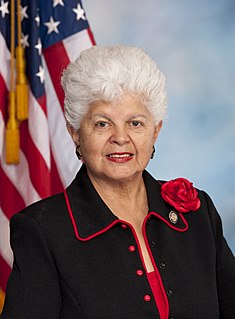A Quote by Tony Evans
Government can run and fund programs, but it can't love, it can't show compassion, and it can't embrace. Our faith is designed to have social implications, not just heavenly ones. The spiritual and the social must be connected.
Related Quotes
I believe it is in the national interest that government stand side-by-side with people of faith who work to change lives for the better. I understand in the past, some in government have said government cannot stand side-by-side with people of faith. Let me put it more bluntly, government can't spend money on religious programs simply because there's a rabbi on the board, cross on the wall, or a crescent on the door. I viewed this as not only bad social policy - because policy by-passed the great works of compassion and healing that take place - I viewed it as discrimination.
The constant exercise of our faith by lofty thinking, prayer, devotion, and acts of righteousness is just as essential to spiritual health as physical exercise is to the health of the body. Like all priceless things, faith, if lost, is hard to regain. Eternal vigilance is the price of our faith. In order to retain our faith we must keep ourselves in tune with our Heavenly Father by living in accordance with the principles and ordinances of the gospel.
Unlike most government programs, Social Security and, in part, Medicare are funded by payroll taxes dedicated specifically to them. Some of the tax revenue pays for current benefits; anything that's left over goes into trust funds for the future. The programs were designed this way for political reasons.
Our compassion is the fruit of our spiritual lives; it actually arises spontaneously when formed by intention in our spiritual practice. Love and compassion are always the goods of the spiritual journey, and they are guided by divine wisdom, which then shapes compassion in the concrete situations of our existence.
To reverse the trend and reduce the role of government in our lives, and thus alleviate the government deficit and inflation pressures, is a giant educational task. The social and economic ideas that gave birth to the transfer system must be discredited and replaced with old values of individual independence and self-reliance. The social philosophy of individual freedom and unhampered private property must again be our guiding light.






























